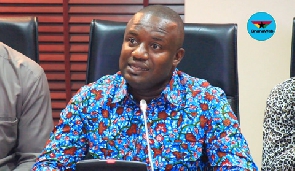Hohoe, June 23, GNA - Recent uprisings in the Middle East and North Africa have raised questions about the capacity of financial centres to stop the flow of resources generated by corruption.
Barriers to Asset Recovery released today by the World Bank Group and the United Nations Office on Drugs and Crime's (UNODC) Stolen Asset Recovery (StAR) Initiative, advises policy makers on reforms that would enable the recovery of stolen assets made available to GNA.
The study recommends eight strategic actions and other recommendations for policy makers, legislators and practitioners.
They include the implementation of new policies and operational procedures to foster trust and mentor other jurisdictions, legislative reforms to facilitate freezing and confiscation of stolen assets and better application of existing anti-money laundering measures.
It said although the exact magnitude of the proceeds of corruption circulating in the global economy is impossible to ascertain, estimates demonstrate the severity and scale of the problem.
The study said the proceeds from crime, corruption, and tax evasion are estimated to represent between $1 trillion and $1.6 trillion annually, with half coming from developing countries.
These estimates do not capture the societal costs of corruption and the devastating impact of such crimes on victim countries.
It stated theft of assets by corrupt officials, weakens confidence in public institutions, damages the private investment climate, and reduces the funds available for core investment in public health, education, and other poverty alleviation measures.
Officials with StAR estimate that only $5 billion in stolen assets have been repatriated over the past 15 years.
The study said the huge gap between even the lowest estimate of assets stolen and those repatriated demonstrates the significant difficulties jurisdictions face in achieving justice for victims of corruption.
Upon closer examination, it is clear that these difficulties involve preventing assets from leaving victim's jurisdictions, preventing stolen assets from entering financial centres and identifying and tracing assets.
It said another major difficulty is achieving international cooperation on the many facets of identifying and recovering stolen assets. The study said politically Exposed Persons (PEPs), or those people who hold prominent public office, other officials, and close associates, typically have easy access to gatekeepers such as financial institutions, services, and other professionals, that help them to disguise the sources of the stolen assets and the identities of those who benefit from them.
It said ineffective anti-money laundering regimes and weak enforcement of preventive measures allows corrupt PEPs and their gatekeepers to launder proceeds of corruption and move them from victim jurisdictions to traditional financial centers.
To foster trust and communication among practitioners, and bolster their expertise, the study recommends significant efforts to train investigators, investigative magistrates, prosecutors, and judges on the international standards, on the various tools available for asset recovery, and on the experience to be gained from actual cases.
It further said that jurisdictions significantly improve and have more recourse to the procedural tools allowing international cooperation before a formal Mutual Legal Assistance (MLA) request is made both to streamline the exchange of information and to improve the quality of the assistance.
The study said international asset recovery is a complex legal issue, and its practice is further complicated by its reliance on international cooperation at every stage of the process.
This complexity makes it even more difficult to mobilize attention and efforts to overcome the barriers identified in this study.
It expressed the hope that monitoring progress in their implementation will lead to an increased number of successful asset recovery cases, which is the ultimate acid test.
General News of Thursday, 23 June 2011
Source: GNA
















